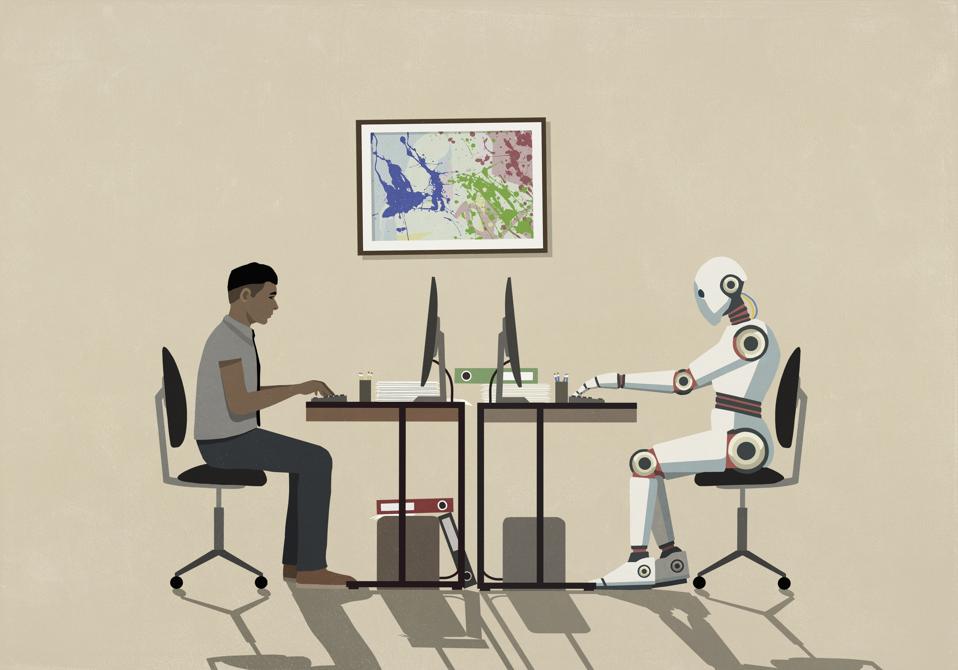As artificial intelligence continues to transform industries, automating technical tasks from data analysis to content creation, professionals are facing a pivotal question: What makes humans indispensable in an AI-driven workplace? The answer lies in the skills machines can’t replicate, our emotional intelligence, adaptability, creativity and critical thinking.
According to a 2025 LinkedIn report, “92% of talent acquisition professionals rate soft skills as equally or more important than technical skills when hiring.” With AI capable of coding, writing reports and making predictions, it’s these human-centred abilities that increasingly differentiate high performers and effective leaders.
Whether you’re leading a team through digital transformation or seeking to future-proof your own career, developing these five soft skills can give you a critical edge in the age of AI.
1. Emotional Intelligence (EQ)
AI can process vast amounts of information, but it can’t empathise, motivate or understand nuance in human interactions. Emotional intelligence, the ability to recognise, understand and manage your emotions and those of others, remains one of the most powerful leadership differentiators.
Leaders with high EQ foster stronger relationships, build trust faster and navigate conflicts more effectively. In team settings, emotional intelligence supports collaboration, improves morale and creates psychological safety, all key drivers of performance that no algorithm can engineer.
Action step: Practice active listening during meetings. Paraphrase others’ points to confirm understanding and show respect, creating deeper connections and reducing misunderstandings.
2. Adaptability
The pace of technological change is only accelerating. In this environment, adaptability is no longer optional; it’s a core competency. The most valuable professionals are those who remain flexible, open to feedback and willing to pivot as new tools and processes emerge.
Adaptability isn’t just about accepting change; it’s about proactively seeking opportunities to grow. Leaders who model adaptability inspire confidence during uncertainty and help their teams weather disruption with resilience.
Action step: Volunteer for projects outside your usual scope to expand your skills and demonstrate your ability to thrive in unfamiliar territory.
3. Creativity
While AI can generate ideas based on patterns, it lacks the contextual, intuitive and imaginative thinking humans bring to the table. Creativity enables us to connect disparate ideas, challenge assumptions and envision solutions no algorithm could predict. It fuels innovation and helps organisations stand out in crowded markets.
In a world where AI can draft proposals or design marketing copy, the competitive advantage comes from creative strategies, storytelling and problem-solving that reflect uniquely human insights.
Action step: Schedule regular “white space” time, unstructured time free of meetings or deadlines, to ideate, reflect and allow creative thinking to emerge organically.
4. Communication
AI tools can summarise reports and draft emails, but they can’t replace the nuanced, persuasive communication needed to inspire teams, negotiate deals or translate complex insights into actionable strategies. Clear, authentic communication remains a cornerstone of leadership and collaboration.
Effective communicators bridge gaps between technical outputs and business decisions, translating AI-generated data into compelling narratives that resonate across stakeholders.
Action step: After every presentation or written communication, seek feedback from a trusted colleague to refine your messaging, tone and clarity over time.
5. Critical Thinking
AI can deliver insights, but it’s up to humans to interpret them wisely, question assumptions and evaluate their implications. Critical thinking empowers professionals to make ethical decisions, spot biases in data, and ensure that automated outputs align with broader organisational goals.
As businesses increasingly rely on AI for decision-making, those who can interrogate data, ask incisive questions and synthesise complex information will play a crucial role in guiding strategy and mitigating risks.
Action step: Before acting on AI-generated recommendations, ask: “What’s missing from this data? Whose perspective isn’t represented? How might this recommendation unintentionally harm or exclude?”
The Human Advantage
In an era where technical skills are being automated at scale, soft skills aren’t a “nice-to-have,” they’re career imperatives. Machines may be able to do the work, but it’s human qualities like empathy, creativity, adaptability and ethical judgment that determine how the work gets done, how teams collaborate and how organisations innovate.
By investing in these timeless, uniquely human capabilities, you’re not just staying relevant, you’re becoming indispensable. In the age of AI, the most powerful competitive edge may simply be the one thing machines can’t replicate: you.



